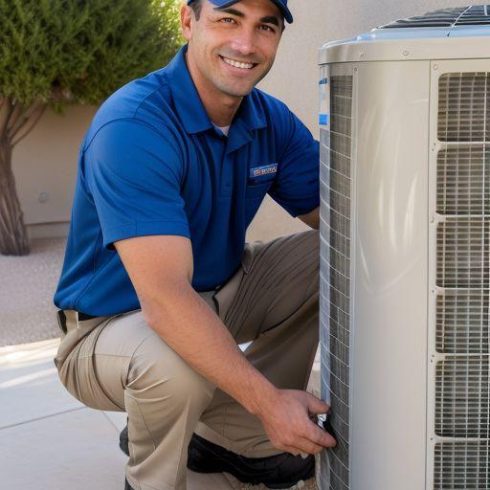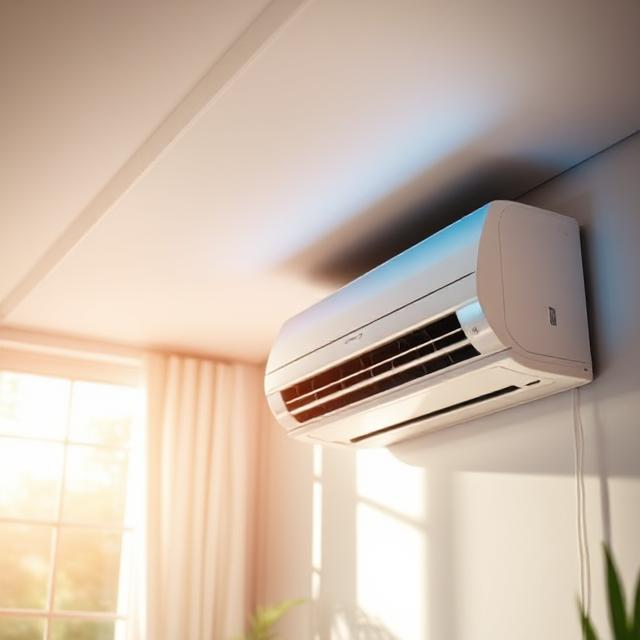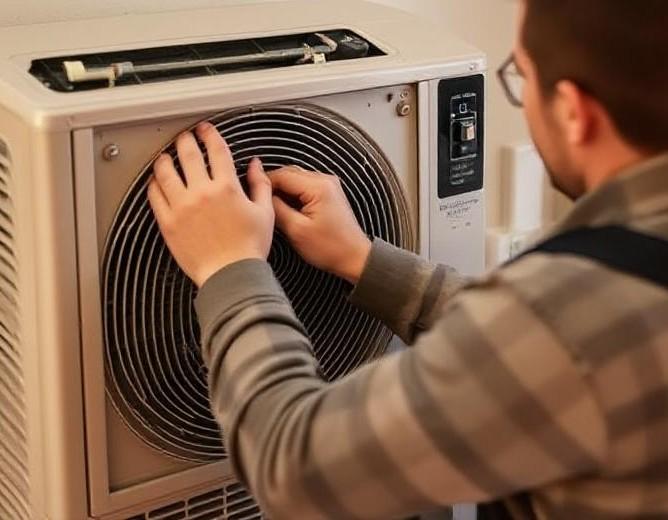What Is Thermal Air Conditioning?
Introduction to Thermal Air Conditioning
Thermal air conditioning is a crucial technology that plays a significant role in modern climate control solutions. As we navigate through the sweltering heat of summer or the biting cold of winter, this innovative system ensures our homes and workplaces remain comfortable and conducive to productivity. But what exactly is thermal air conditioning? This article delves deep into this fascinating subject, exploring its principles, applications, advantages, and much more.

What Is Thermal Air Conditioning?
Thermal air conditioning refers to systems designed to regulate indoor temperatures by managing heat transfer in a controlled environment. Essentially, it operates on the principle of removing heat from one area and transferring it to another—either cooling or heating a space as needed. professional HVAC contractor Thermal CA The core components typically include an evaporator, condenser, compressor, and expansion valve.

How Does Thermal Air Conditioning Work?
The function of thermal air conditioning systems can be broken down into several key phases:
This continuous loop allows for efficient temperature regulation in your living space.
Types of Thermal Air Conditioning Systems
Centralized vs. Decentralized Systems
Centralized Systems
Centralized thermal air conditioning units are often used in larger buildings or homes. They rely on ductwork to distribute cooled or heated air throughout multiple rooms.
Decentralized Systems
Decentralized systems are ideal for smaller spaces or individual rooms. They may include window units or portable air conditioners that provide localized climate control without requiring extensive ductwork.
Split-System vs. Packaged Units
Split-System Thermal AC Units
A split-system consists of two main components—an indoor unit and an outdoor unit—making them quieter than packaged units while providing efficient cooling and heating capabilities.
Packaged Units
Packaged thermal air conditioning systems contain all necessary components in one outdoor unit. These are usually installed on rooftops or at ground level beside buildings.
Advantages of Thermal Air Conditioning
Energy Efficiency
One of the most significant benefits of modern thermal air conditioning systems is their energy efficiency. By utilizing advanced technologies like variable speed compressors and smart thermostats, they can significantly reduce energy consumption compared to older models.
Improved Indoor Air Quality (IAQ)
Advanced filtration systems integrated into thermal air conditioners help improve indoor air quality by removing pollutants such as dust, pollen, and other allergens.
Enhanced Comfort Levels
Thermal air conditioning provides consistent temperature regulation throughout your space while also controlling humidity levels for optimal comfort.
Applications of Thermal Air Conditioning in Various Industries
Residential Use
In residential settings, thermal air conditioning enhances comfort levels during extreme weather conditions while adding value to properties.
Commercial Use
Office buildings rely heavily on efficient thermal AC systems for climate control to maintain employee productivity and comfort while minimizing operational costs.
Industrial Applications
In industrial settings, maintaining specific temperature ranges is crucial for equipment functionality and product preservation. Here’s how thermal air conditioning plays a role:
- Process Cooling
- Equipment Cooling
- Warehouse Temperature Control
Key Components of Thermal Air Conditioning Systems
Refrigerant Types Used in Thermal Air Conditioning
The choice of refrigerant plays a critical role in determining an AC system's efficiency and environmental impact. Some common types include:
| Refrigerant | Properties | |-------------|--------------------------------------------------| | R-410A | High efficiency; low ozone depletion potential | | R-134A | Non-toxic; widely used in residential applications| | R-32 | Lower global warming potential |

Ductwork Considerations for Centralized Systems
Properly designed ductwork is essential for maximizing airflow efficiency across centralized thermal AC systems. Considerations include:
- Duct Size
- Insulation Quality
- Sealing Gaps
Choosing the Right Thermal Air Conditioning System for Your Needs
Assessing Your Space Requirements
When selecting a thermal AC system, consider factors such as room size, insulation quality, orientation towards sunlight, and overall climate conditions.
Budgeting for Installation & Maintenance Costs
Understanding both upfront installation costs and ongoing maintenance expenses will help you make informed decisions about which system best suits your needs.
Understanding Energy Ratings & Efficiency Standards for Thermal AC Systems
Energy ratings provide insight into how efficiently an AC system operates relative to its cooling output. Key terms include:
- SEER (Seasonal Energy Efficiency Ratio)
- EER (Energy Efficiency Ratio)
Higher ratings indicate better energy performance!
Common Myths About Thermal Air Conditioning Debunked!
- Fact: It's often more efficient to use programmable thermostats that adjust temperatures when you're not home.
- Fact: Oversized units can lead to inefficiencies due to short cycling; proper sizing is key!
- Fact: Features vary widely among models; research energy ratings before purchasing!
FAQs About Thermal Air Conditioning
1. What is the lifespan of a thermal air conditioning system? Typically around 12–15 years with proper maintenance!
2. How often should I service my thermal AC unit? Annually is recommended; this helps maintain efficiency!
3. Can I install a thermal AC unit myself? While DIY is possible for some models, professional installation ensures optimal performance!
4. What size thermal AC do I need? Size depends on square footage—consult sizing calculators or professionals!
5. Does using a programmable thermostat really save energy? Yes! It optimizes settings based on your schedule!
6. Are there eco-friendly options available? Absolutely! Look for models using low-global-warming-potential refrigerants!
Conclusion: The Future of Thermal Air Conditioning
As technology continues evolving rapidly within HVAC industries worldwide—thermal air conditioning remains at the forefront regarding comfort solutions tailored toward sustainability goals! Investing wisely now means reaping benefits later—not just financially but environmentally too!
With numerous options available today—from energy-efficient designs featuring smart technology integration—to eco-friendly refrigerants—the future looks bright indeed! So whether you're seeking respite from summer heatwaves or combating winter chills—understanding what is thermal air conditioning empowers you towards making informed choices that enhance life quality indoors all year round!